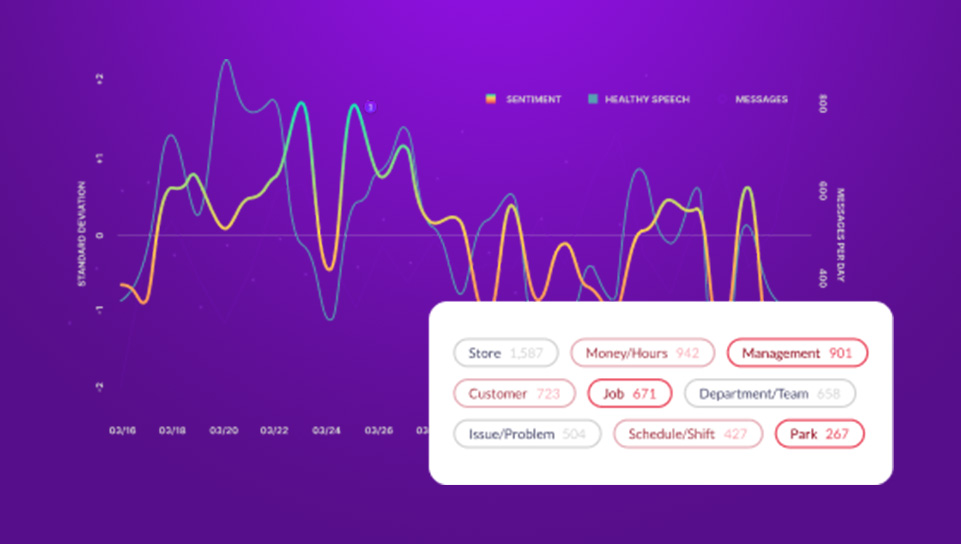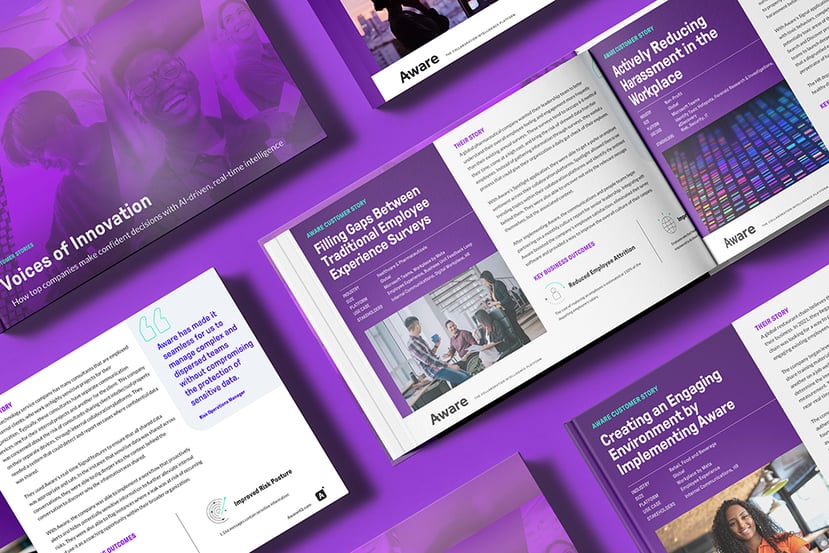The Happy Employees, Happy Shareholders Connection
by Aware
The impact of a good—or bad—reputation is priceless. A positive brand reputation in the marketplace can lead to increased customer preference, organizational forgiveness in times of a PR crisis, and ultimately the future value of a given business. We see this in action when a headline such as a sexual harassment scandal or an exposure of information breach hits the press. Trust is broken and often within hours, so is the stock price.
The Impact of Employee Sentiment on Company Performance
Glassdoor studied the stocks of public companies on the inaugural 2009 Glassdoor list and held through 2014. This portfolio of companies with high employee satisfaction and positive sentiment towards their employer returned 243.3% versus the S&P 500 Index return of 121% during the same period.
The National Bureau of Economic Research also found that the relationship between employee satisfaction was connected to stock returns in companies around the globe.
Some investors are even using employee rankings and sentiment to inform where invest. Blackrock told Reuters that they “look for companies that have solid employee rankings...[because]…happy and engaged employees lead to more wins and more sales opportunities.”
It does seem that happy employees lead to happy customers… and happy shareholders.
Accurately Measuring Employee Sentiment
Historically, employee sentiment is captured in an annual employee engagement survey. However, as companies transform more and more rapidly—so can organizational sentiment. This is why making decisions off of a once-a-year employee satisfaction survey can be problematic and simply uninformed.
Additionally, in most scenarios where employee sentiment is collected, the participant is at risk of appearing like a negative worker—even in the context of a ‘anonymous’ survey or a platform such as Glassdoor. And so, there is an overwhelming amount of individuals who add a positive spin when asked about their individual opinion of their employer. As a result, an accurate and obective assessment of true employee sentiment is difficult to collect.
Real-Time, Accurate Sentiment Insights—No Surveys Required
Aware's proprietary sentiment model analyzes workplace communications in collaboration platforms such as Workplace by Facebook, Microsoft Teams and Yammer in order to deliver a real-time sentiment metric informed by both message content and context.
Wiretap’s Head of Product, Matt Pasternack explains that “true, objective employee insights from collaboration data is an untapped opportunity: competitive advantages, revenue growth projections, stock price prediction, getting ahead of an employee mass exodus, and so much more. That’s one of the reasons we built Aware, to give companies the tools not only for risk management scenarios, but to glean actionable insights from the massive amount of unstructured communication data that is produced throughout their organization on a constant basis.”







